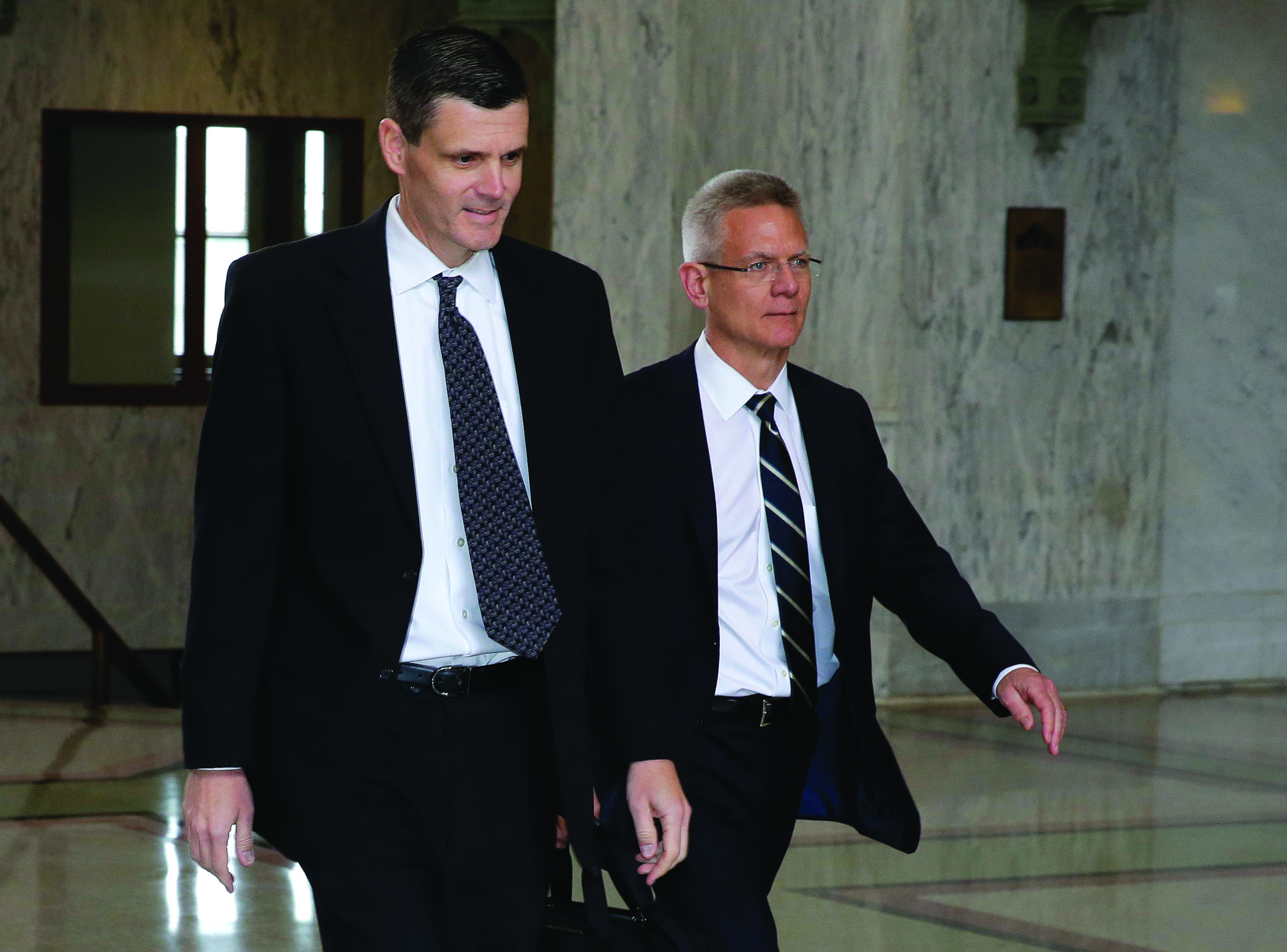By Gene Johnson
The Associated Press
SEATTLE — Federal prosecutors say indicted Washington state Auditor Troy Kelley paid more than $900,000 in stolen money to the high-priced law firm representing him, and they want a judge to look into whether that creates a conflict of interest for his attorney.
In a motion filed Tuesday in U.S. District Court, prosecutors asked Judge Ronald Leighton to inquire into whether attorney Mark Bartlett has a conflict of interest in representing Kelley.
Bartlett, a former senior federal prosecutor in Seattle who is now with the firm of Davis Wright Tremaine, declined to comment Tuesday night.
Kelley is on a leave of absence as he fights a criminal indictment alleging he stole money from clients of his former business, a real estate services firm, and evaded taxes.
The U.S. attorney’s office in Seattle says that in March, after Kelley was told he was likely to be indicted, he transferred $447,000 to the IRS and $908,000 to Davis Wright Tremaine for use as a retainer.
Prosecutors allege the money came from an account in which Kelley pooled money he was supposed to refund to clients.
Under an agreement with prosecutors, Davis Wright Tremaine is not spending the contested money.
But prosecutors say it could nevertheless create a conflict of interest if they have to call Bartlett or other lawyers at his firm as witnesses to confirm whether the money was spent for Kelley’s benefit, or if Bartlett has to cross-examine lawyers at his firm.
And if Kelley’s transfer of the money to the law firm itself constitutes evidence of a crime, he could claim in court that he did it on the advice of counsel. In that case, Bartlett might also have a conflict, the government said.
“The payments to Davis Wright Tremaine and to the United States government constitute evidence that — contrary to his statements in tax returns and to IRS special agents — Kelley in fact possessed and controlled the money in the Vanguard account, rather than holding it in impound for the benefit of third parties,” prosecutors wrote.
“If Kelley in fact believed that the money appropriately should be held in an impound account . . . Kelley could not plausibly have decided in March 2015 that he was simply entitled to convert the money to his own benefit.”
Prosecutors said they have similar conflict-of-interest concerns about Rob McCallum, a criminal tax lawyer who works at the firm of LeSourd & Patten, who has worked with Bartlett on Kelley’s case.
Their motion focused on Bartlett because McCallum is now advising Kelley only informally, they said.
